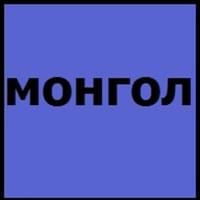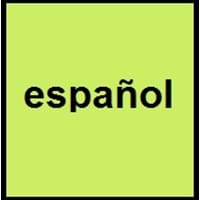Countries
China, Mongolia
Andora, Argentina, Aruba, Australia, Belize, Bolivia, Brazil, Canada, Chile, Colombia, Costa Rica, Cuba, Dominican Republic, Ecuador, El Salvador, Equatorial Guinea, France, Gibraltar, Guatemala, Honduras, Jamaica, Latvia, Luxembourg, Mexico, Morocco, Namibia, Netherlands Antilles, New Zealand, Nicaragua, Norway, Panama, Paraguay, Peru, Philippines, Puerto Rico, Russia, Spain, Sweden, Switzerland, Trinidad and Tobago, Turkey, United Kingdom, United States of America, Uruguay, Venezuela, Western Sahara
National Language
China, Mongolia
Spain
Second Language
Not spoken in any of the countries
Andora, Aruba, Australia, Austria, Belgium, Belize, Brazil, Bulgaria, Canada, Denmark, France, Germany, Ireland, Israel, Italy, Jamaica, Luxembourg, Morocco, Netherlands, Netherlands Antilles, New Zealand, Philippines, Poland, Portugal, Romania, Russia, Slovenia, Switzerland, Trinidad and Tobago, Turkey, United Kingdom, United States of America, US Virgin Islands
Speaking Continents
Asia
Africa, Asia, Europe, North America, South America
Minority Language
Not spoken in any of the countries
Brazil, France, Germany, Italy, Japan, Morocco, United Kingdom
Regulated By
Council for Language and Literature Work, State Language Council (Mongolia)
Asociación de Academias de la Lengua Española
Interesting Facts
- Mongolian was first written using Phagspa script in late 13th century.
- There is no connection between Mongolian, Japanese and Korean, but still in terms of grammar and sentence structure they are very similar.
- One of the world's most phonetic language is Spanish.
- Up to the 18th century, Spanish was diplomatic language.
Similar To
Turkish Language
French Language
Derived From
Not Available
Latin
Alphabets in
Mongolian-Alphabets.jpg#200
Spanish-Alphabets.jpg#200
Scripts
Mongolian alphabets: Traditional Mongolian script
Latin
Writing Direction
Not Available
Left-To-Right, Horizontal
Hello
Сайн уу (Sain uu)
hola
Thank You
та бүхэнд баярлалаа (ta bükhend bayarlalaa)
Gracias
How Are You?
Юу байна? (Yuu baina?)
Cómo estás?
Good Night
Сайн шөнийн (Sain shöniin)
Buenas Noches
Good Evening
Сайн үдэш (Sain üdesh)
Bonne soirée
Good Afternoon
Сайн Үдээс хойш (Sain Üdees khoish)
Buenas Tardes
Good Morning
Өглөөний мэнд (Öglöönii mend)
Buenos Días
Please
Хэрэв (Kherev)
Por Favor
Sorry
Уучлаарай (Uuchlaarai)
triste
Bye
Баяртай (Bayartai)
adiós
I Love You
Би чамд хайртай (Bi chamd khairtai)
Te Quiero
Excuse Me
Өршөөгөөрэй (Örshöögöörei)
Discúlpeme
Dialect 1
Khalkha Mongolian
Mexican Spanish
Where They Speak
Mongolia
Mexico
How Many People Speak
Not Available
Dialect 2
Ordos Mongolian
Cuban Spanish
Where They Speak
Mongolia
Cuba
Dialect 3
Khorchin Mongolian
Puerto Rican Spanish
Where They Speak
Mongolia
Puerto Rico
How Many People Speak
Not Available
Speaking Population
Not Available
Second Language Speakers
Not Available
Native Name
монгол (mongol) монгол хэл (mongol hêl)
Español
Alternative Names
Not Available
Castellano, Castilian, Español
French Name
mongol
espagnol; castillan
German Name
Mongolisch
Spanisch
Pronunciation
/mɔŋɢɔ̆ɮ xiɮ/
[espaˈɲol], [kasteˈʎano]
Ethnicity
Not Available
Not Available
Language Family
Mongolic family
Indo-European Family
Subgroup
Mongolian
Romance
Branch
Not Available
Not Available
Early Forms
Middle Mongolian, Classical Mongolian, Mongolian
Old Spanish and Spanish
Standard Forms
Khalkha, Southern Mongolian
Pluricentric Standard Spanish
Language Position
Not Available
Signed Forms
Mongolian Sign Language
Signed Spanish
Scope
Macrolanguage
Individual
ISO 639 6
Not Available
Not Available
Glottocode
mong1331
stan1288
Linguasphere
part of 44-BAA-b
51-AAA-b
Language Type
Living
Living
Language Linguistic Typology
Subject-Object-Verb
Subject-Object-Verb
Language Morphological Typology
Not Available
Fusional, Synthetic
Mongolian and Spanish Greetings
People around the world use different languages to interact with each other. Even if we cannot communicate fluently in any language, it will always be beneficial to know about some of the common greetings or phrases from that language. This is where Mongolian and Spanish greetings helps you to understand basic phrases in Mongolian and Spanish language. Mongolian word for "Hello" is Сайн уу (Sain uu) or Spanish word for "Thank You" is Gracias. Find more of such common Mongolian Greetings and Spanish Greetings. These greetings will help you to be more confident when conversing with natives that speak these languages.
Mongolian vs Spanish Difficulty
The Mongolian vs Spanish difficulty level basically depends on the number of Mongolian Alphabets and Spanish Alphabets. Also the number of vowels and consonants in the language plays an important role in deciding the difficulty level of that language. The important points to be considered when we compare Mongolian and Spanish are the origin, speaking countries, language family, different greetings, speaking population of these languages. Want to know in Mongolian and Spanish, which language is harder to learn? Time required to learn Mongolian is 44 weeks while to learn Spanish time required is 24 weeks.





